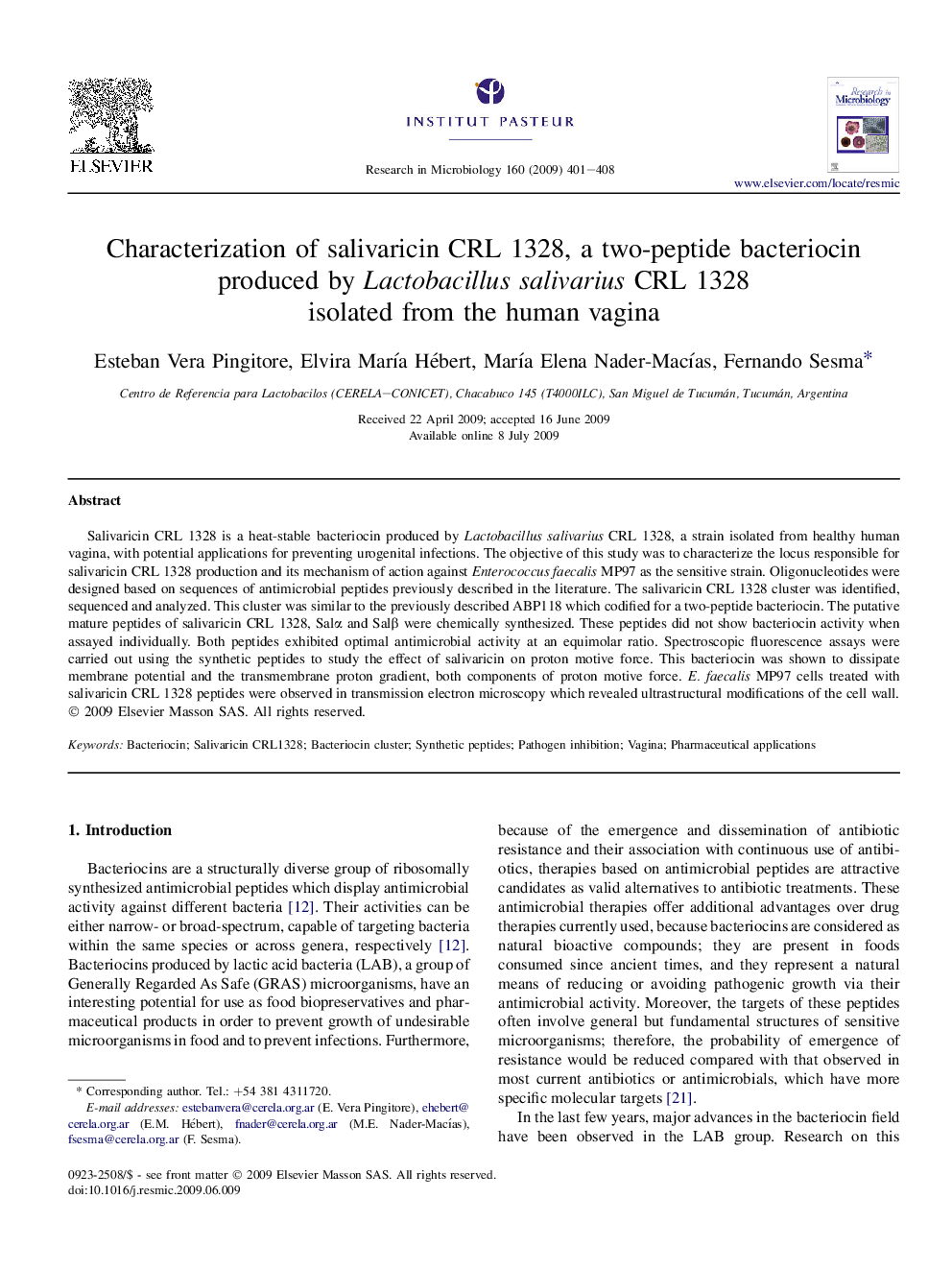| Article ID | Journal | Published Year | Pages | File Type |
|---|---|---|---|---|
| 4359152 | Research in Microbiology | 2009 | 8 Pages |
Abstract
Salivaricin CRL 1328 is a heat-stable bacteriocin produced by Lactobacillus salivarius CRL 1328, a strain isolated from healthy human vagina, with potential applications for preventing urogenital infections. The objective of this study was to characterize the locus responsible for salivaricin CRL 1328 production and its mechanism of action against Enterococcus faecalis MP97 as the sensitive strain. Oligonucleotides were designed based on sequences of antimicrobial peptides previously described in the literature. The salivaricin CRL 1328 cluster was identified, sequenced and analyzed. This cluster was similar to the previously described ABP118 which codified for a two-peptide bacteriocin. The putative mature peptides of salivaricin CRL 1328, Salα and Salβ were chemically synthesized. These peptides did not show bacteriocin activity when assayed individually. Both peptides exhibited optimal antimicrobial activity at an equimolar ratio. Spectroscopic fluorescence assays were carried out using the synthetic peptides to study the effect of salivaricin on proton motive force. This bacteriocin was shown to dissipate membrane potential and the transmembrane proton gradient, both components of proton motive force. E. faecalis MP97 cells treated with salivaricin CRL 1328 peptides were observed in transmission electron microscopy which revealed ultrastructural modifications of the cell wall.
Related Topics
Life Sciences
Immunology and Microbiology
Applied Microbiology and Biotechnology
Authors
Esteban Vera Pingitore, Elvira MarÃa Hébert, MarÃa Elena Nader-MacÃas, Fernando Sesma,
